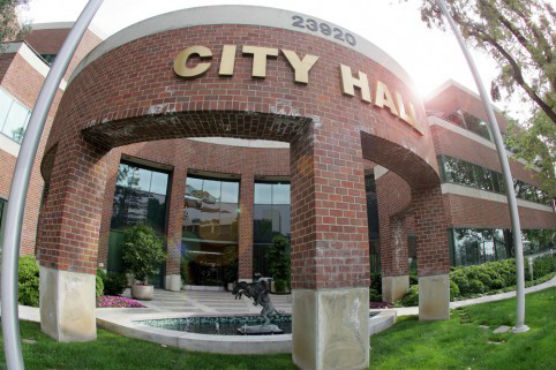The Santa Clarita City Council voted unanimously Tuesday to establish an ordinance that protects residential and commercial tenants citywide from evictions through the end of May.
Under the eviction moratorium, landlords cannot evict tenants for nonpayment of rent through at least May 31. Renters will have to demonstrate that they are unable to pay due to financial impacts related to the COVID-19 outbreak and must communicate that in writing — or via email or text — to their landlords at the earliest opportunity.
Tenants will still have to pay for missed payments but without the implementation of any late fees. After the May 31 mark, or later should Gov. Gavin Newsom extend the statewide order, renters will have six months to pay the delinquent amount of rent on top of any then-current due amount, according to the City Attorney Joseph Montes.
The ordinance itself does not include language for enforcement by the city “given concerns as to the unknown scope of potential impacts on code enforcement and legal resources,” said Montes.
The moratorium comes as many tenants have experienced sudden income losses and have become vulnerable to eviction, due to a statewide directive for people to stay home and for most workplaces to temporarily shut down as health and government officials reiterate the importance of preventing the spread of the virus.
“By passing this resolution we help alleviate some of the stress that our residents are feeling,” Santa Clarita Mayor Cameron Smyth said, adding that those still able to pay their rent should continue to pay “because that’s important to keep the economy going.”
Santa Clarita’s directive follows Newsom’s March 27 order on protections against evictions created for residential tenants only, and Los Angeles County’s own ban, issued March 19, that covers both residential and commercial tenants but only in the unincorporated portions of the county. In the Santa Clarita Valley, the county’s eviction moratorium would only cover places such as Stevenson Ranch and Castaic.
Rent due is around the corner on April 1 for many across the Santa Clarita Valley, including most “nonessential” businesses faced with having to close their doors. With that in mind, the SCV Chamber of Commerce issued a letter of support for the ordinance, urging the city to establish the order so businesses “don’t lose eligibility for disaster relief loans to survive the crisis,” as an eviction on their credit reports could cause them to lose eligibility.
The council agreed to include language in the order clarifying that renters of manufactured homes also fall within the order, following comments raised from a resident.
While the city’s order covers renters, Smyth has highlighted that Newsom established a 90-day grace period on residential mortgages and foreclosures for those impacted by the coronavirus. Property taxes are still due on April 10 across California, while the federal and state income tax deadline has extended to July 15.
The council’s unanimous vote came Tuesday at City Hall during a teleconferenced-special meeting that was live-streamed for the public to tune in and participate virtually due to social distancing guidelines amid the COVID-19 outbreak.
No comments were made during the meeting about the bus driver who died Tuesday morning or two other city transit drivers who tested positive for COVID-19. After learning about the death, the city said in a prepared statement that it “sends heartfelt condolences” and that it was working on enhancing the deep-cleaning of vehicles.
Like this:
Like Loading...
Related





 Tweet This
Tweet This Facebook
Facebook Digg This
Digg This Bookmark
Bookmark Stumble
Stumble RSS
RSS


























REAL NAMES ONLY: All posters must use their real individual or business name. This applies equally to Twitter account holders who use a nickname.
3 Comments
There was already a statewide order in effect… So this is all theater. Also… Those missed payments don’t just go away magically… And people without jobs don’t just magic into 2 to 3 months rent out nowhere. This won’t help anyone… Just give them a place to stay while waiting to be homeless.
No, the state order didn’t (doesn’t) cover commercial property.
The city has no legal standing to interfere in Date Superior Courts operate by each county.
If they are so concerned they should pay the rents rather than Rob landlords. This is a useless political posturing that harms landlords because now tenants think they do not need to pay rent.